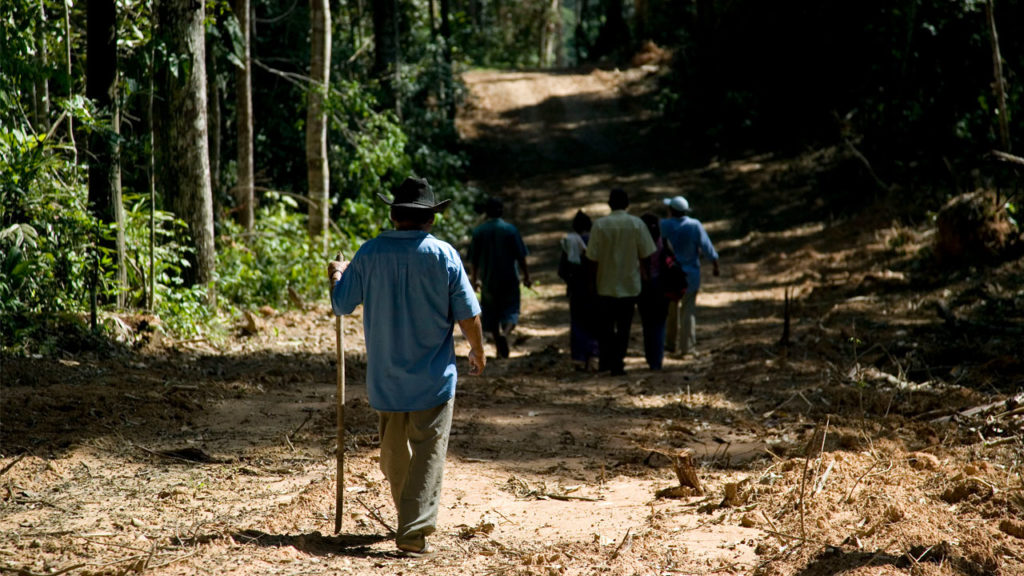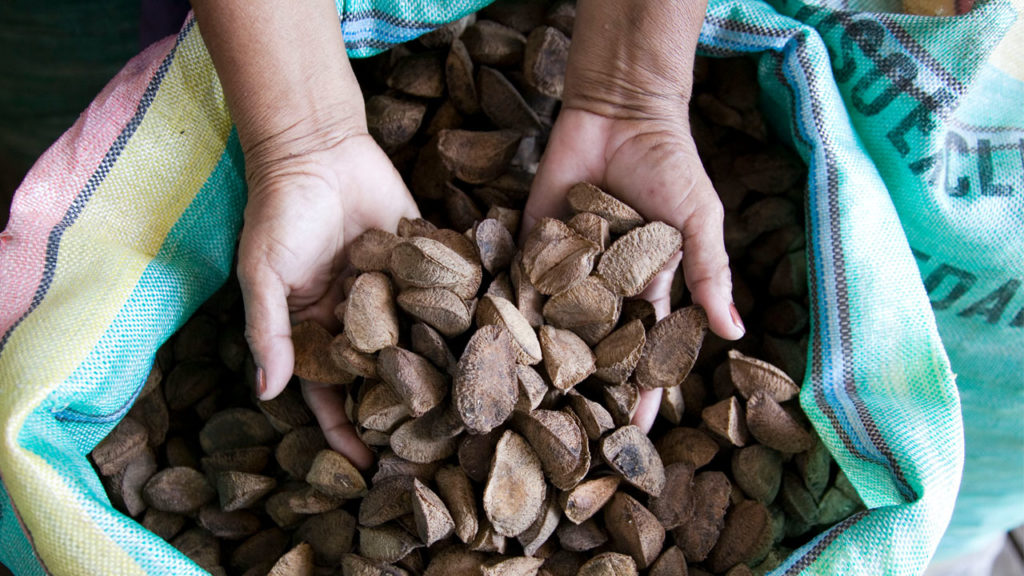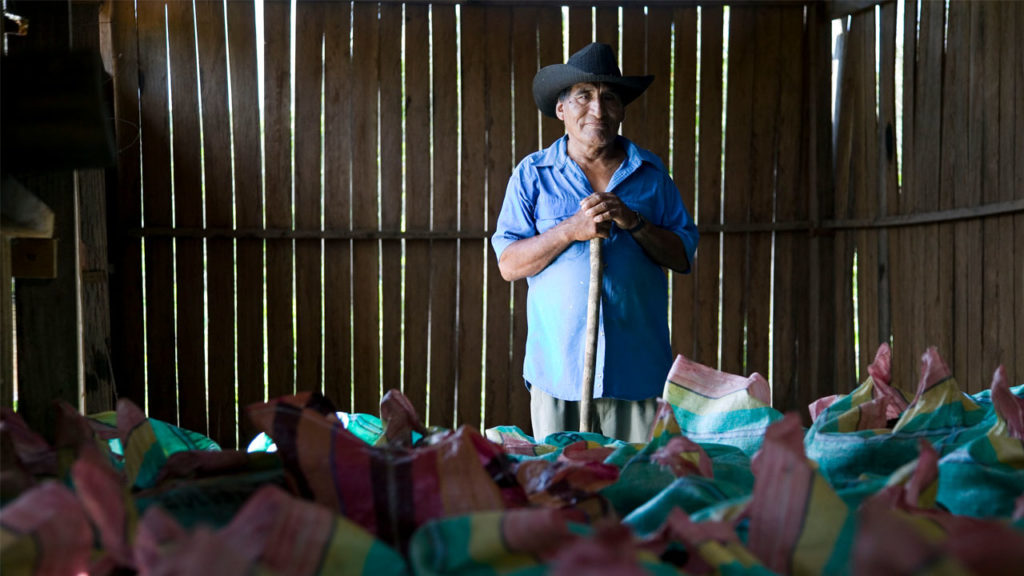by Bernadette Coote, Liberation Foods
An article published a couple of weeks ago in the Guardian, ‘The forgotten people picking your Brazil nuts at a fraction of the price’, outlined the immense challenges faced by communities that rely on gathering Brazil nuts from the Amazon floor. From the violence embedded in illegal logging and the destruction of the rainforest, to the lack of access to the retail market and expensive middlemen, the economic instability and insecure future facing these groups is terrifying.
Read the Guardian article: The forgotten people picking your Brazil nuts at a fraction of the price
Unbeknownst to many, Bolivia is the largest Brazil nut producer and exporter in the world. 75 percent of the economy in the department of Beni, which borders Brazil in the northeast of Bolivia, comes from Brazil nuts. It accounts for 40 percent of household income with over 89,000 people reliant on it, yet 64 percent of the forest-dependent population of Beni cannot satisfy their basic needs.
However, the need, injustice, and lack of external support felt by these rural communities has seen grassroots mobilisation taking place, with both Brazilian and Bolivian communities independently taking charge. Co-operatives are beginning to build an industry that is a safe, sustainable and lucrative business, ensuring money stays in the hands of those that work hard to collect these nuts, rather than big businesses. Co-operatives now need consumers and buyers to make a conscious decision to choose them by choosing Fairtrade.

Liberation, who provides Fairtrade Brazil nuts to several of the biggest supermarkets in the UK, works closely with two co-ops from the Beni region. For them, the significance of being Fairtrade certified opens up international markets and increases income based on long-term trading relationships and transparent supply chains. The principals of Fairtrade give year-on-year security to members of the co-op and a minimum price is agreed in advance, securing livelihoods and avoiding that expensive middleman.
On top of this, an additional Premium is offered, which is used as the community sees fit. Over the past few years, vital infrastructure has been built, transportation bought, and self-sufficiency promoted through investment in food crops that smallholder farmers can grow to feed their families. Most recently, the Premiums were used to support the most vulnerable families during Covid-19, which hit Indigenous communities very hard. Emergency relief packages were distributed, expensive medical bills were covered, and equipment was hired for local hospitals.
These two co-ops, with a combined membership of just 148 (plus families) are also responsible for the monitoring and preservation of over 100,000 hectares of Amazon rainforest and promoting the conservation of biodiversity within the wider community. The Brazil nut tree has never been successfully cultivated domestically and thus there is great potential for the multi-million dollar nut industry to protect rather than damage parts of the Amazon, an unusual feat in itself.

Supporting the rights and way of life of these communities is vital both from a human rights and conservation perspective. As a buyer or consumer, choosing Fairtrade Brazil nuts is one way to support the rights of these workers, to contribute to the expansion of co-op networks and, at the end of the day, safeguard the future of this food.
Buy Liberation brazil nuts from Tesco
Buy Liberation brazil nuts from Sainsbury’s
If you’re interested in using Liberation as a supplier, then please contact Liberation directly
